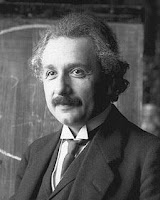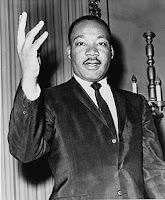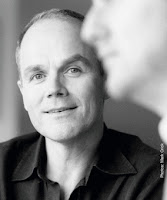
If you like silliness, the Roundabout Theatre Company's Broadway revival of Noël Coward's 1942 comedy, Present Laughter, now at the American Airlines Theatre, will bestow you with two and a half hours of it. That’s a bit much for me, but the production, directed by Nicholas Martin, does offer some memorable comic moments, and is certainly lovely to look at.
Victor Garber is the human star of the show, playing the egotistical aging matinee idol Garry Essendine, but I swooned for an even more radiant star, Alexander Dodge’s creation of Essendine’s opulent 1930s art deco London duplex. When the curtain rose, the audience oohed and aahed before bursting into applause. With Rui Rita’s lighting design it shimmers. Expect many design nominations this spring. Jane Greenwood’s costumes -- smoking jackets, silk pajamas, evening gowns, you know the Coward world -- are topnotch as well.
As for the play, I wonder why Roundabout chose this Coward work to revive. There’s no real plot, just the vain star reacting to the various friends, lovers and business associates who revolve around him. “I’m always acting,” he says dramatically. I actually thought Garber and most of the cast overacted, but a show like this allows for a great dealing of hamming it up. And it was funny watching him sprint to the mirror atop the piano to primp when he hears the doorbell. (Essendine’s ego is so big his living room displays a massive oil painting of him as Hamlet. Coward devilishly devised Essendine as a tongue-in-cheek mockery of himself and even played him on tour in 1942 and later in London and America.)
Music lover that I am, I did appreciate Garber at Essendine’s baby grand singing Coward's "World Weary," and loved the touch at the curtain call of having Garber lead the cast in singing “I’ll See You Again.” I had been enjoying Simon Green’s recording of that song earlier, so it was a treat to hear it live.
My favorite character was Miss Erickson (Nancy E. Carroll), the droll Scandinavian housekeeper who is a devotee of spiritualism and who halfheartedly attends to her duties, cigarette dangling from her mouth, proffering her opinions, wanted or not. The always wonderful Harriet Harris is delightful as Essendine’s longtime secretary, Monica Reed
Tickets for Present Laughter, which plays through March 21, are available by calling Roundabout Ticket Services at (212) 719-1300, online at www.roundabouttheatre.org or at the box office, 227 W. 42nd St.






















